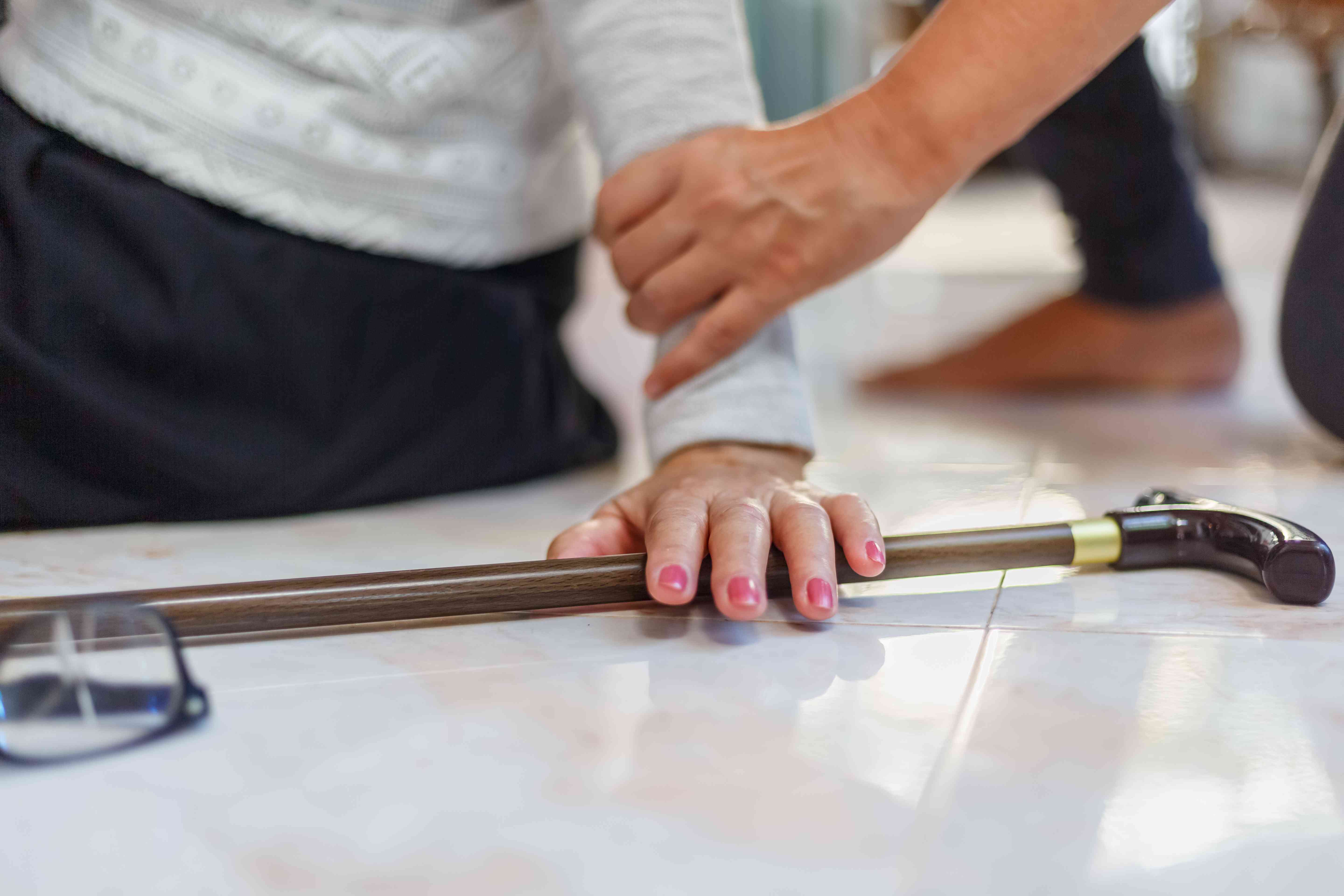Falls Raise Risk of Dementia Diagnosis in Older Adults By 21%, New Research Suggests But it's unclear whether the fall happened because of undiagnosed dementia or if the fall contributed to cognitive decline

Older adults who have experienced a fall are at an increased risk of being diagnosed with dementia, new research found

Toa55 / Getty Images
- A new study found that older adults who have experienced a fall are at a 21% increased risk of being diagnosed with dementia.
- The cause of this finding is unclear—whether the fall happened because of undiagnosed dementia or if the fall somehow contributed to cognitive decline later remains unknown.
- Experts advise adults over age 65 to take steps to prevent a fall and to consider undergoing cognitive screening if they do experience a fall.
Older adults who experienced a fall have a higher likelihood of being diagnosed with dementia after their accident as compared to seniors with other injuries, according to a new study.
The study, published on Sept. 30 in JAMA Network Open, evaluated Medicare data from nearly 2.5 million adults over age 66 who were hospitalized or visited the emergency room due to an injury between 2014 and 2015. About half of those injuries were falls.
After one year, researchers followed up and found that 10.6% of participants who fell were diagnosed with dementia. But only 6.1% of patients who had other injuries developed dementia.
“Our study highlights that older adults who fall are at increased risk for developing dementia,” study author Alexander Ordoobadi, MD, a general surgery resident at Brigham and Women’s Hospital, told Health.
In fact, falling was linked to a 21% increased risk of being diagnosed with dementia in the future, the data showed.
In particular, this association between falling and dementia diagnosis was greater for those who had been admitted to the hospital for their injury as compared to those just visiting the emergency room. Additionally, about 22% of the study participants had been admitted to a nursing home in the year before their injury—this group was more likely to experience a fall over other injuries.
In the U.S., more than 14 million older adults—about one in four—fall each year.
“Falls may be able to act as precursor events that can help us identify people who need further cognitive screening,” Molly Jarman, PhD, MPH, assistant professor and deputy director of the Center for Surgery and Public Health at Brigham and Women’s Hospital, said in a statement.
How To Recognize the Early Warning Signs of DementiaWhich Comes First: Dementia or a Fall?
The results of the study are interesting, as "the relationship between falls and dementia appears to be a two-way street," Jarman said in a press release.
On the one hand, this higher risk of dementia after falling could mean that people who fell had undiagnosed dementia at the time of their accident, the authors noted. Of the new cases of dementia diagnosed during the study, 11% happened while the patient was hospitalized, meaning they likely had dementia when they fell.
Even if they didn’t actively have dementia at the time of their injury, it’s possible that these older adults who fell did have mild cognitive impairment (MCI), a condition that often precedes Alzheimer’s disease and dementia, Ordoobadi said. Research suggests MCI can raise a person’s risk of falling.
People with MCI or early cognitive decline “may not yet have noticeable physical symptoms, but could already be experiencing subtle issues with balance, decision-making, or attention, including issues with fully assessing safety and the ability to react fast enough to navigate obstacles,” Joel Salinas, MD, MBA, clinical assistant professor of neurology at the NYU Grossman School of Medicine and chief medical officer at Isaac Health, told Health.
However, another potential explanation is that the fall itself could be causing cognitive issues—falling could lead to brain injuries that speed up cognitive decline, Salinas explained.
At this point, though, “the study can’t definitively separate whether the fall happened because of undiagnosed dementia, or if the fall somehow contributed to cognitive decline later,” he said.
It’s even possible that both are to blame, but “more research is needed to understand the exact relationship,” Salinas said.
A Call for Cognitive Screening and Fall Prevention
The risk for falls goes up around the age of 65, Jarman told Health. You may not be able to prevent falling entirely, but there are some things you can do to reduce your risk.
“Some medications increase risk of falls, so older adults should ask their primary care provider or pharmacist to review their medications list,” Jarman said.
“Simple steps like regular exercise, keeping the home safe, and staying mentally active can make a big difference in reducing fall risk and maintaining brain health,” Salinas added.
But if a fall does happen, the study authors said older adults should consider undergoing cognitive screening—particularly if they’ve been hospitalized or brought to the emergency room.
“While not every fall means a person has dementia, it might be worthwhile to assess memory, attention, and decision-making after a fall to identify early signs of cognitive issues before they progress,” Salinas noted.
These screenings can sometimes be difficult to organize, however. Providers may not have time to do an assessment while the patient is in the hospital or may not follow up after the injury. Plus, many older adults don’t have a primary care provider or access to a geriatrician.
“Currently, it is not routine practice to perform cognitive screening for older adults who experience a fall,” said Ordoobadi. “We hope that the results of our study will encourage clinicians to monitor the cognitive health of older adults who fall.”
This story originally appeared on: Health News - Author:Kristen Fischer


















